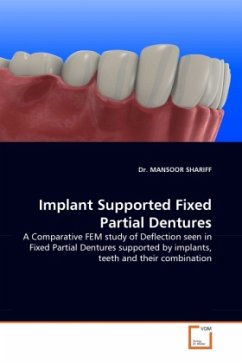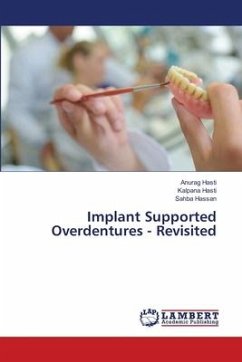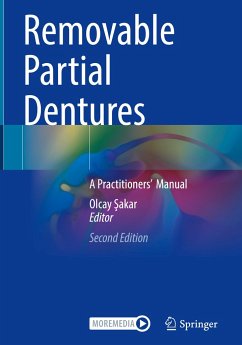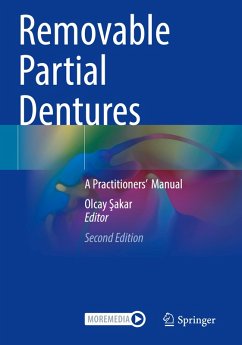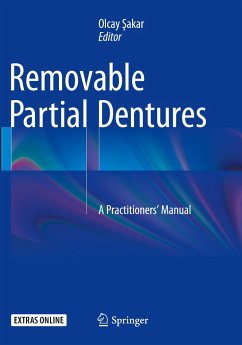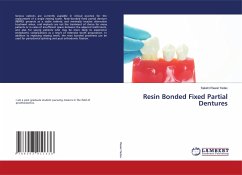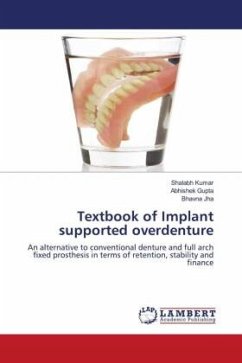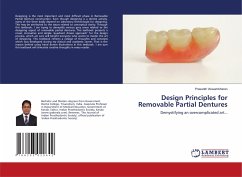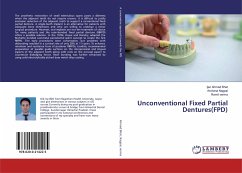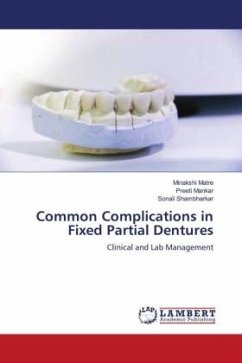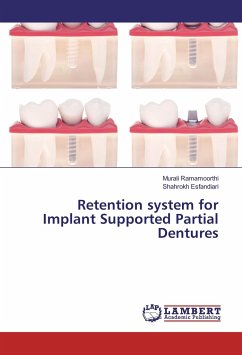
Retention system for Implant Supported Partial Dentures
Versandkostenfrei!
Versandfertig in 6-10 Tagen
41,99 €
inkl. MwSt.

PAYBACK Punkte
21 °P sammeln!
Choosing an appropriate dental implant system from hundreds of implant systems and thousands of different available components, is simplified by choosing the type of retention system. However, available evidence in choosing retention system is impeded by the paucity of literature and the result of which at its best extrapolated from completely edentulous conditions.The aim of this Health Technology Assessment report is to systematically review the literatures to assess the outcome of different retention systems used in partially edentulous patients to support the implant prosthesis and to dete...
Choosing an appropriate dental implant system from hundreds of implant systems and thousands of different available components, is simplified by choosing the type of retention system. However, available evidence in choosing retention system is impeded by the paucity of literature and the result of which at its best extrapolated from completely edentulous conditions.The aim of this Health Technology Assessment report is to systematically review the literatures to assess the outcome of different retention systems used in partially edentulous patients to support the implant prosthesis and to determine the type of retention systems that can be recommended for clinical application. From the gathered evidence it appears that the cement retained prostheses [single crown and FPD] perform better than screw retained prostheses in partially edentulous patients.



